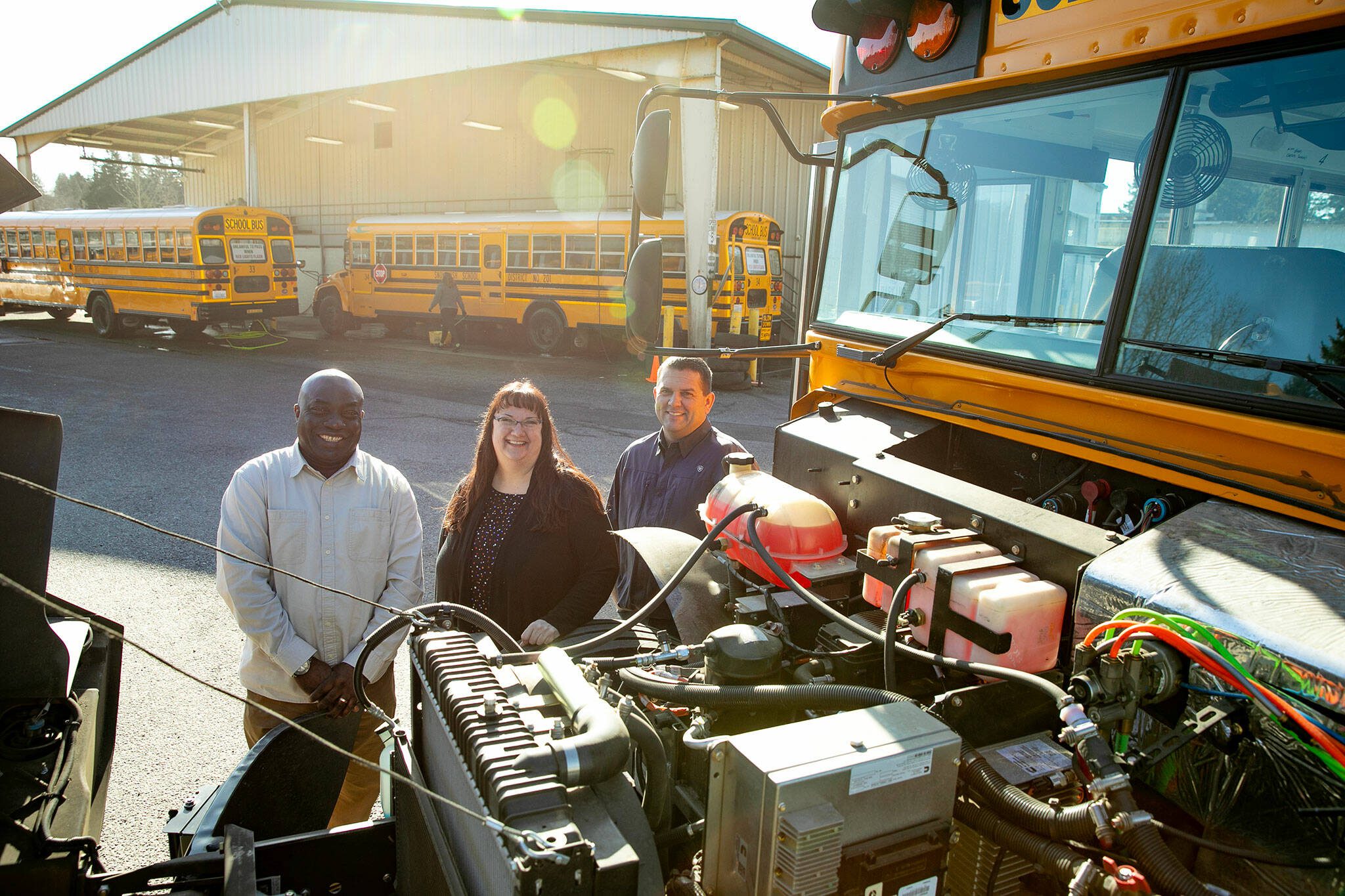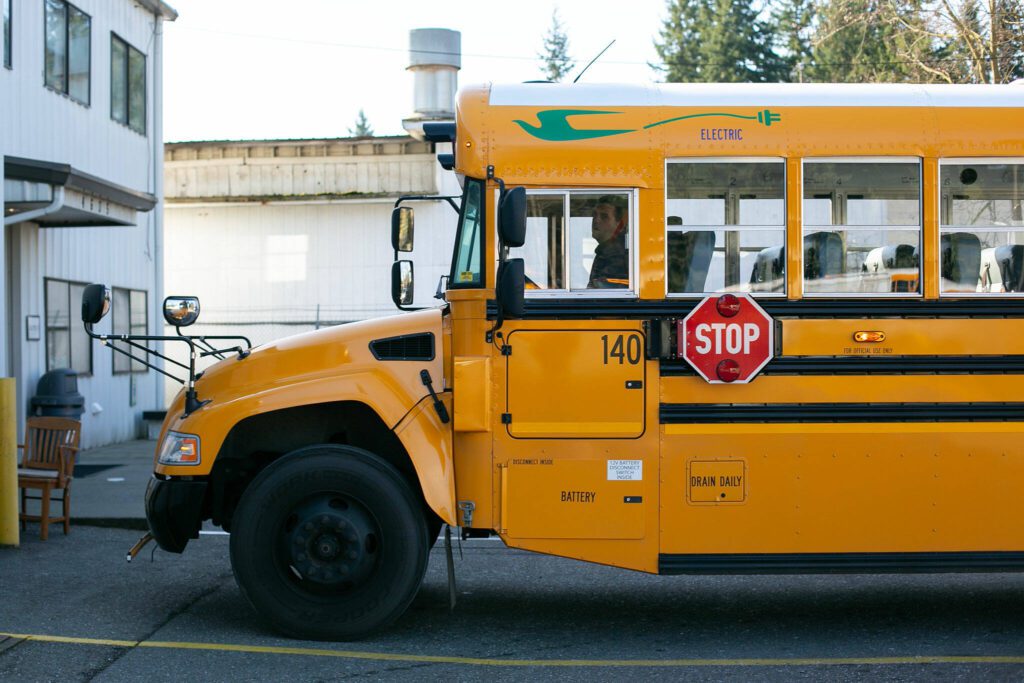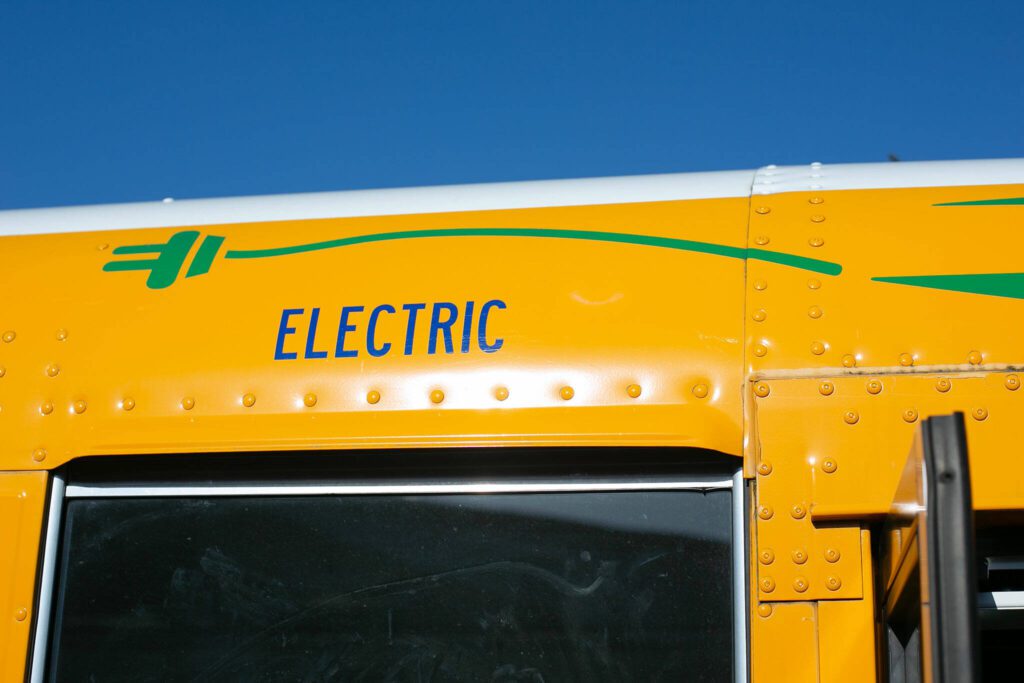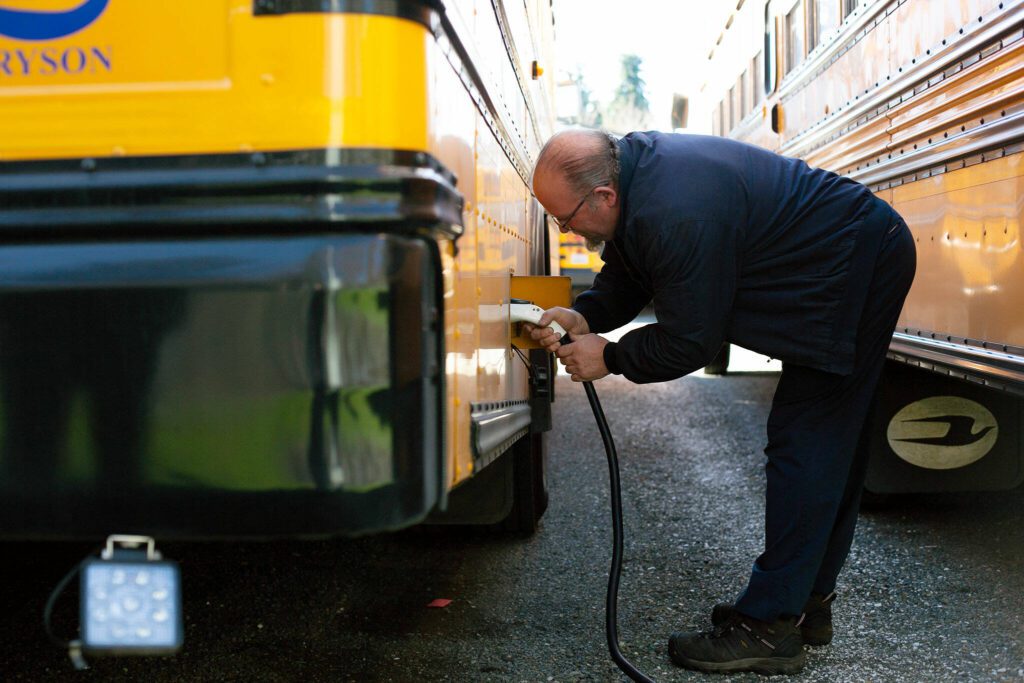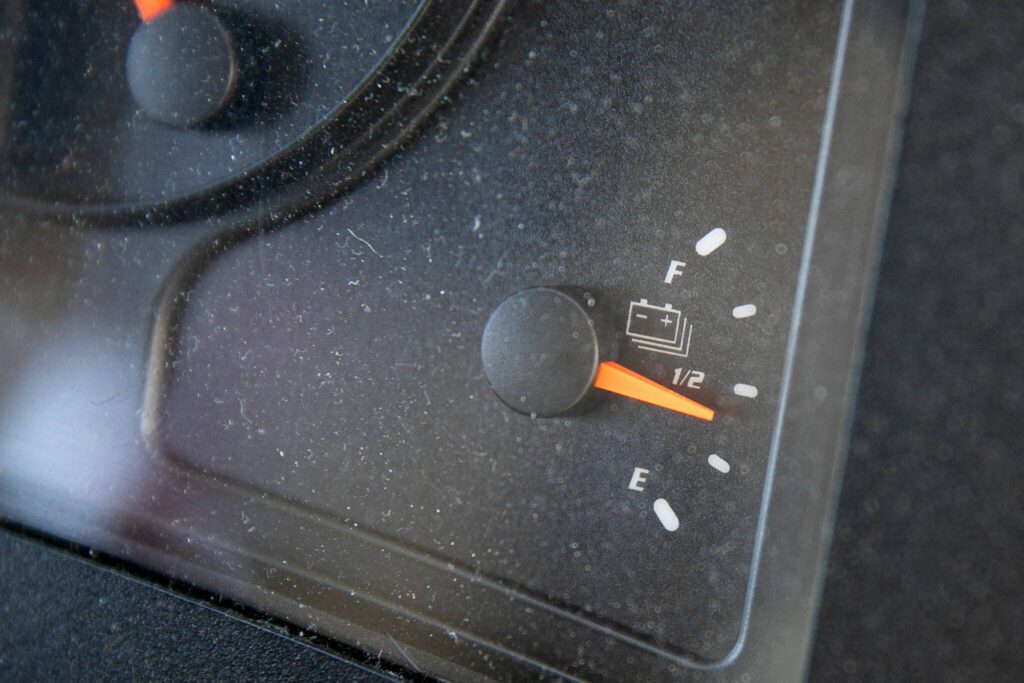SNOHOMISH — In the Snohomish School District, bus mileage is critical.
The school district covers 128 square miles, while a nearby district like Everett covers 39.
Current electric buses can travel a maximum of 85 miles before needing a charge, making things tricky for longer routes.
The district purchased one electric bus in 2022 for about $391,000, helped by a $304,000 grant from the state Department of Ecology. Transportation leaders had to carefully calculate the bus’ route. Driving over hills and turning on the heat can sap the battery.
Going all-electric wouldn’t work right away, said Veronica Schmidt, the Snohomish School District’s transportation director. But the school district welcomes the chance to phase out diesel- and gasoline-fueled buses.
“If we can get some,” she said, “we’ll try it.”
This month, state legislators passed House Bill 1368 to help districts pay for electric school buses, affirming that the long-term benefits outweigh the short-term costs and other speed bumps. Originally, state representatives proposed that the state require all new school bus purchases be electric beginning Sept. 1, 2035, in line with deadlines set in California and New York — a goal critics described as “too much, too soon.”
The Washington version delivered to Gov. Jay Inslee did not include a hard deadline.
Instead, the bill expands the state’s current electric bus program, requiring state officials to prioritize grants for populations vulnerable to air pollution, especially communities of color and low-income residents. The measure was still awaiting the governor’s signature as of this week.
School districts can also use grants to build charging stations and facilities to store electric buses.
Rep. Tana Senn, the bill’s lead sponsor, wants school districts to be excited about the initiative.
“This is a tangible, impactful way to improve air quality and children’s health,” said Senn, a Democrat from Mercer Island.
Diesel exhaust is “carcinogenic to humans,” according to the International Agency for Research on Cancer. Children are more susceptible to the negative health effects of diesel exhaust when bus drivers idle the vehicles. Diesel exhaust pollutants also contribute to ozone pollution and acid rain.
In Snohomish, the driver for the electric bus has about five hours in between the morning and afternoon routes to charge the vehicle at the school district’s charging station. Staff also plug the bus in overnight, but it can take up to eight hours to fully recharge.
Electric buses also can’t hold as many students, Schmidt said. The district’s electric bus can take 71 passengers. Other buses in the fleet can handle 77. Batteries in electric buses are heavy, so drivers have to take fewer students to meet weight distribution standards.
One perk of the electric bus is drivers can hear kids better, Schmidt said, because the vehicles are quieter.
This year, the Environmental Protection Agency awarded the Snohomish School District another grant for three smaller Type A electric buses. They can hold just over 20 passengers. These buses typically cost $320,000.
Schmidt isn’t sure when the district will get those vehicles.
In September, Everett Public Schools deployed three electric buses, funded by an Ecology grant, school district spokesperson Kathy Reeves said.
The Everett school district contracts with Durham School Services for student transportation. And the company received a grant from the Environmental Protection Agency for three more electric buses and charging stations, beginning in the 2024-2025 school year.
By 2025-2026, the school district’s fleet could grow to nine electric buses if Durham gets another grant from Ecology.
Also this year, the Environmental Protection Agency is helping Snohomish schools buy 11 propane-fueled buses — an alternative Everett is exploring, too.
Propane fuel has lower carbon content compared to gasoline and diesel fuel, according to the U.S. Department of Energy.
On a full tank, a propane bus can travel about 300 miles. Propane buses are also more cost-effective. Diesel fuel currently costs 64 to 80 cents per mile, while propane costs 19 to 30 cents a mile, Schmidt said.
Durham School Services recently acquired 25 propane buses for Everett to use next school year.
The Everett school district anticipates saving over $200,000 annually by using propane instead of diesel or unleaded gasoline, Reeves said.
School district officials have to trade in one diesel or gasoline-powered bus every time they’re awarded a grant for a propane or an electric one. Staff take the bus to an auto yard, where any salvageable parts are recycled.
Ta’Leah Van Sistine: 425-339-3460; taleah.vansistine@heraldnet.com; Twitter: @TaLeahRoseV.
Talk to us
> Give us your news tips.
> Send us a letter to the editor.
> More Herald contact information.
